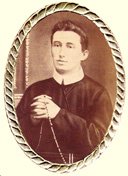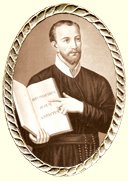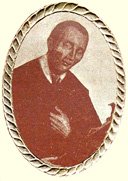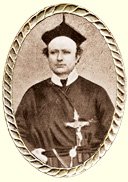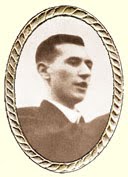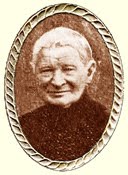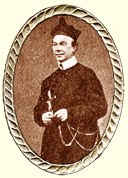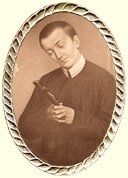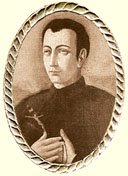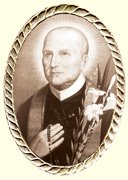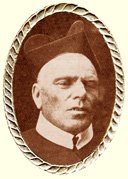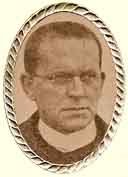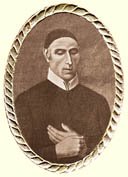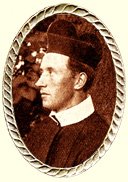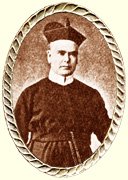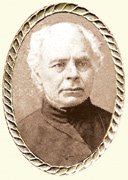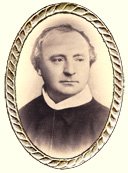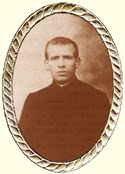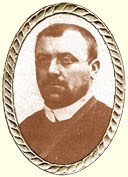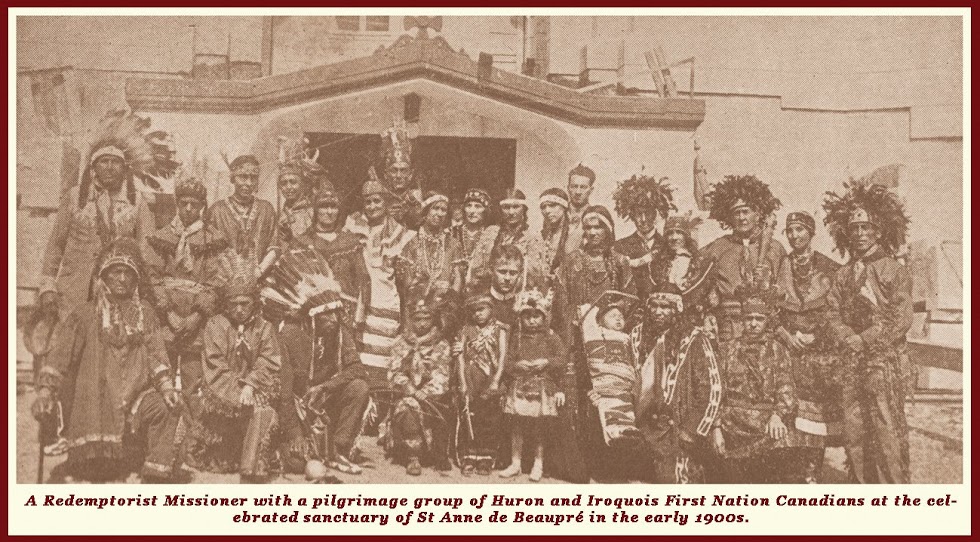Rev Fr John Gibson C.SS.R. (1822-1902)
 There exists a biographical sketch of Father Gibson, written by a Father who had been in the Novitiate with him, and who knew him well for over fifty years. Extracts will be taken from this manuscript, as being the best means of conveying an idea, as adequate as can be given within a short space, of the subject of this notice.
There exists a biographical sketch of Father Gibson, written by a Father who had been in the Novitiate with him, and who knew him well for over fifty years. Extracts will be taken from this manuscript, as being the best means of conveying an idea, as adequate as can be given within a short space, of the subject of this notice.
“The death of the Rev. John Gibson has been felt as a personal loss by all his brethren, for he had endeared himself to all by his simple piety, his perfect religious spirit, and the amiable cheerfulness of his conversation. He was born in Salford, on the 16th May, 1822 and baptized on the following day, in St. Mary’s, Mulberry-street. His father, Michael Gibson, was born in 1781, at York, but settled down in Manchester and engaged in the cotton trade, and was very prosperous.”
It is then related that John was first educated at a private school, and afterwards, for three years at Ushaw, and that at the age of fourteen years he was placed in the office of a Liverpool cotton-broker, where he spent five years.
“At last, having no taste for commercial pursuits, and disgusted with this kind of life, he induced his father to take him out of the office and allow him to complete his education in some college … At the beginning of 1844 he felt a great change in his soul and became anxious about his vocation. By the advice of a holy Priest he made a ten days’ retreat, at the close of which he resolved to leave the world and study for the priesthood.”
He was ordained in 1849 at Ushaw, and remained at the college as Professor. His entrance into the Congregation of the Most Holy redeemer is thus recorded: “His position, however, at the college, and his occupation, were not congenial to him, and the conviction gradually formed itself in his mind that he was not yet in the state to which God called him. After taking advice he went, in the month of October, to make a retreat at St. Mary’s, Clapham, and at the close of it he made up his mind to join the Congregation of the Most Holy Redeemer. In the month of July following he took his final departure from college, and after a visit to Bishop Eton, went on to Clapham, and thence, in the month of August, proceeded to the Novitiate at St. Trond, in Belgium.” Of his year in St. Trond we read: “He went through his novitiate with great edification, esteemed and loved by all, and was professed on the Feast of St. Teresa, 1852.”
Soon after this, Father Gibson entered upon the active work of the sacred ministry. He was Rector for three years at Bishop Eton, England, for a few years he became Vice-Rector at Perth, Scotland, and again for some months in the House of Studies at Teignmouth. But it was as Minister in the various communities that a great part of his fifty years as a Redemptorist was spent – for this office he was singularly qualified.
Father Gibson was in Limerick, Ireland, from 1862 to 1868. There, too, he filled the post of Minister. Of this period it is written: “In June, 1868, his six years of labour in Limerick terminated. He had given during that time thirty-six Missions, besides many retreats in convents and colleges. His health had been greatly improved by his stay in Ireland; he was hardly recognised at first by some of his old friends.” His Mission work continued until the year 1890, when he was attached to St. Joseph’s, Teignmouth. He had now become worn out and unfit for hard work. The change was of great benefit to him.
In 1899 the Golden Jubilee of his priesthood was solemnised. But this year was the beginning of a complete failure of health and strength. At last, full of years and good works, he was called to his reward. He died at Clapham on the 11th February, 1902.
In conclusion may be quoted the following extract from ‘Notes on the Character and Virtues of Father Gibson’ appended to the sketch of his life: “For those who lived with our dear confrere, all description of his character or praise of his virtues would be superfluous; but to those who shall come after us it will be interesting and certainly edifying to learn what manner of man he was amongst us. The eulogy of Holy Job, given by the inspired writer, seems to sum up most accurately the character of our deceased brother. He was indeed conspicuously ‘vir simplex et rectus’; simple-minded and single-hearted; upright and truth-loving; amiable, pleasant, and cheerful; fond of innocent mirth, to which he contributed greatly in recreation. His piety was great but not demonstrative, and was most seen in his perfect exactness at all religious duties, so that he was a model of regular observance and obedience to rule and to Superiors. †
It is then related that John was first educated at a private school, and afterwards, for three years at Ushaw, and that at the age of fourteen years he was placed in the office of a Liverpool cotton-broker, where he spent five years.
“At last, having no taste for commercial pursuits, and disgusted with this kind of life, he induced his father to take him out of the office and allow him to complete his education in some college … At the beginning of 1844 he felt a great change in his soul and became anxious about his vocation. By the advice of a holy Priest he made a ten days’ retreat, at the close of which he resolved to leave the world and study for the priesthood.”
He was ordained in 1849 at Ushaw, and remained at the college as Professor. His entrance into the Congregation of the Most Holy redeemer is thus recorded: “His position, however, at the college, and his occupation, were not congenial to him, and the conviction gradually formed itself in his mind that he was not yet in the state to which God called him. After taking advice he went, in the month of October, to make a retreat at St. Mary’s, Clapham, and at the close of it he made up his mind to join the Congregation of the Most Holy Redeemer. In the month of July following he took his final departure from college, and after a visit to Bishop Eton, went on to Clapham, and thence, in the month of August, proceeded to the Novitiate at St. Trond, in Belgium.” Of his year in St. Trond we read: “He went through his novitiate with great edification, esteemed and loved by all, and was professed on the Feast of St. Teresa, 1852.”
Soon after this, Father Gibson entered upon the active work of the sacred ministry. He was Rector for three years at Bishop Eton, England, for a few years he became Vice-Rector at Perth, Scotland, and again for some months in the House of Studies at Teignmouth. But it was as Minister in the various communities that a great part of his fifty years as a Redemptorist was spent – for this office he was singularly qualified.
Father Gibson was in Limerick, Ireland, from 1862 to 1868. There, too, he filled the post of Minister. Of this period it is written: “In June, 1868, his six years of labour in Limerick terminated. He had given during that time thirty-six Missions, besides many retreats in convents and colleges. His health had been greatly improved by his stay in Ireland; he was hardly recognised at first by some of his old friends.” His Mission work continued until the year 1890, when he was attached to St. Joseph’s, Teignmouth. He had now become worn out and unfit for hard work. The change was of great benefit to him.
In 1899 the Golden Jubilee of his priesthood was solemnised. But this year was the beginning of a complete failure of health and strength. At last, full of years and good works, he was called to his reward. He died at Clapham on the 11th February, 1902.
In conclusion may be quoted the following extract from ‘Notes on the Character and Virtues of Father Gibson’ appended to the sketch of his life: “For those who lived with our dear confrere, all description of his character or praise of his virtues would be superfluous; but to those who shall come after us it will be interesting and certainly edifying to learn what manner of man he was amongst us. The eulogy of Holy Job, given by the inspired writer, seems to sum up most accurately the character of our deceased brother. He was indeed conspicuously ‘vir simplex et rectus’; simple-minded and single-hearted; upright and truth-loving; amiable, pleasant, and cheerful; fond of innocent mirth, to which he contributed greatly in recreation. His piety was great but not demonstrative, and was most seen in his perfect exactness at all religious duties, so that he was a model of regular observance and obedience to rule and to Superiors. †




















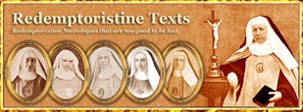
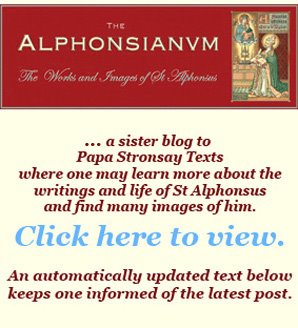.jpg)









